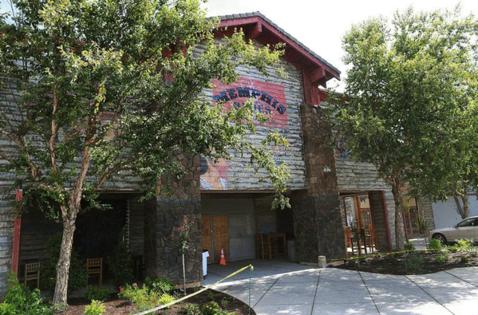Are California's card rooms legal? A court will decide after several tribes sue under a new law
Published in News & Features
SACRAMENTO, Calif. — A coalition of California Native American tribes on Thursday sued dozens of California card rooms, alleging that the non-tribal-owned gambling parlors are in violation of the California Constitution.
The tribes are suing under a law — Senate Bill 549 — that went into effect Wednesday.
That law, called the “Tribal Nations Access to Justice Act,” authorizes California tribes to bring legal action against card rooms that are operating outside of the law.
Seven tribes — the Agua Caliente Band of Cahuilla Indians, the Barona Band of Mission Indians, the Pechanga Band of Indians, the Sycuan Band of the Kumeyaay Nation, the Viejas Band of Kumeyaay Indians, the Yocha Dehe Wintun Nation and the Yuhaaviatam of San Manuel Nation — brought the suit, filed by the San Francisco-based law firm Keker, Van Nest & Peters.
“Defendants brazenly profit from illegal gambling,” the complaint alleges.
The complaint notes that tribal-state compacts give tribes the exclusive right to run casino games — such as baccarat and blackjack — that are “banked,” meaning they result in losers paying and winners getting paid.
“But for years, California card rooms and their partner third-party proposition players have ignored the law and refused to recognize tribes’ exclusive rights. Instead, they have reaped illegal windfalls by offering banked games that are barred by the California Constitution, California Penal Code, and relevant judicial decisions,” the complaint reads.
The complaint notes that Californians voted in 1984 to amend the California Constitution to ban banked games, though tribes are exempted from that ban under a 2000 state constitutional amendment.
While card rooms adapted to that ban by adopting rules to rotate the banking position from player to player, the complaint notes that “most of the game rules, either as written or by card room interpretation, do not require actual rotation of the bank — merely the offering of it. Thus, a single player may bank the game uninterrupted, just as in Nevada- and New Jersey-style banked games, when no other player accepts an offer to bank.”
The lawsuit points out that card rooms have partnered with third-party proposition players, who pay for the privilege of being the banked player with its “superior odds,” and that such partners “typically do not make wagers at all, but rather take on the role of paying out all the wins and losses, whatever they may be — in other words, taking on the traditional role of the bank found in a Nevada or New Jersey casino and rendering the games banked games.”
The complaint alleges that card rooms have created gaming experiences “indistinguishable from banked games in Nevada or New Jersey.”
“California card rooms have not been bashful in advertising that fact, with several rooms prominently advertising ‘Vegas-style’ gaming.” the complaint reads.
The California Gaming Association, which represents card rooms in the state, issued a statement in response to the lawsuit expressing confidence that its members “are operating table games in full compliance with the law, just as they have done for decades.”
The association argued that its members offer legal games reviewed and approved by the California Department of Justice, and produce thousands of jobs and pay hundreds of millions in taxes, all licensed by the state and “subject to extensive regulatory oversight.”
“This attempt by tribal casinos to shut down lawful competition by tax-paying California businesses will fail,” the association said in the statement.
____
©2025 The Sacramento Bee. Visit at sacbee.com. Distributed by Tribune Content Agency, LLC.







Comments